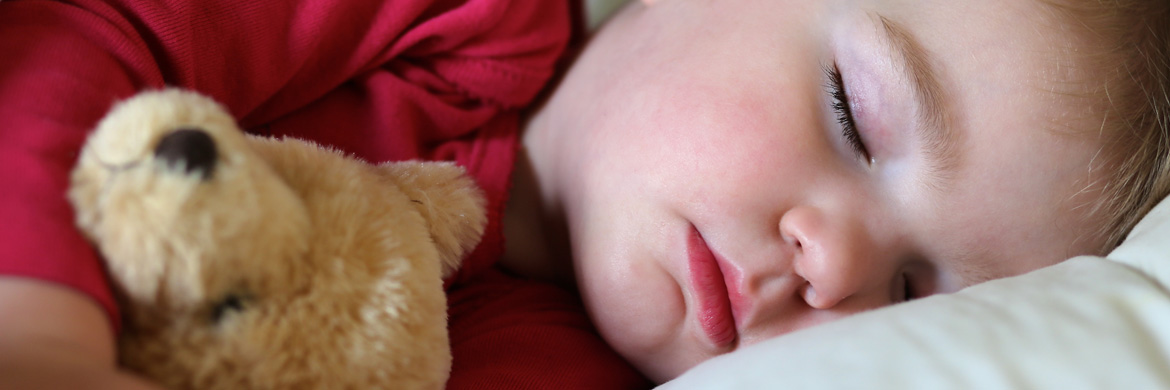
Hyper Kids may be Sleep Deprived
- Dr. Jonathan Warren
- March 10, 2023
- Blog
- No responses
“The number of children taking amphetamine stimulants and other medications for ADD or ADHD is a tragedy,” said Dr. Jonathan Warren, who is a Sleep Doctor at Suburban Sleep. For many of these children, Warren said, attention deficit is only a secondary symptom of a sleep disorder for which medication may not be the best treatment.
Furthermore, he added, when cognitive or behavioral problems are diagnosed, one should always rule out sleep disorders.
“Any sleep disorder in children can lead to the same symptoms as attention deficit disorder or attention deficit hyperactivity disorder,” Warren said. “Statistics show that 50 percent of kids labeled with ADD and ADHD have a sleep disorder and when that sleep disorder is corrected, the ADD and ADHD symptoms go away.”
However, children with sleep disorders may display “radically dissimilar” symptoms than adults may show. Adults may exhibit daytime sleepiness or fatigue when sleep quality is poor. Kids may show the exact opposite, Warren said, and that’s because of children’s “innate energy.”
“When they’re sleep-deprived, their energy continues to drive them, but becomes misdirected. They can’t stay on task,” Warren said. “They may be irritable, angry, unruly, have temper tantrums and their grades may drop. They look like attention deficit children.”
It’s a growing problem. According to the Centers for Disease Control and Prevention, the number of children in the United States given an ADHD diagnosis has risen from 7.8 percent in 2003 to 11 percent in 2011 – a number Warren would say includes children who actually have sleep disorders.
Nearly 100 sleep disorders are now recognized, according to the National Institute of Health. Warren said these include nocturnal seizures, sleep terrors, bedwetting, sleep walking, sleep apnea, movement disorders such as restless leg syndrome, body rocking, circadian sleep disorders and chronic sleep deprivation.
Brian Schroeder of Inverness had this experience. The second-grade teacher of his son, James, called about his son’s inattention in class. Although James occasionally walked in his sleep, Schroeder did not think “sleep disorder” until James’ doctor suggested the family see Warren.
Schroeder said James was tested and diagnosed with parasomnia – one of many sleep disorders that are not sleep apnea – and then treated with medication. James’ sleep improved and he received better grades. Now 14, James has outgrown the disorder and no longer needs medicine.
“We are lucky that we had a doctor that didn’t jump the gun,” Schroeder said.
Soon afterward, Schroeder noticed that his younger son, Liam, now 12, snored, tired easily and had dark circles under his eyes. Liam was diagnosed with and treated for sleep apnea.
Interestingly, Schroeder himself was diagnosed with a sleep disorder after his children were. A snorer all his life and having learned sleep disorders may run in families, Schroeder and his wife decided to have him tested. Schroeder now wears a CPAP.
“I had it as a child, I’m sure,” he said, “but I was never diagnosed. I was always tired. That’s what my normal was. I never really gave it much thought.”
Warren recommends parents rule out sleep disorders if their children show any hyperactivity, irritability, impulsiveness, impaired ability to learn, poor memory, poor concentration, depression, abusiveness, aggression, defiance, slow motor skills and/or reaction time and behavior that negatively affects friendships.
Warren has seen anger issues and defiant and abusive behavior in children with sleep disorders, along with misdiagnoses of behavioral disorders, oppositional defiant issues and school avoidance, he said.
Testing for pediatric sleep disorders may include a thorough medical history, psychological evaluation and sleep study, Warren said. Unearthing those disorders can be tricky. Young children tend to wheeze instead of snore, he added. Older children may snore, Warren said, and snoring is never normal.
“Children’s sleeping should be quiet and uninterrupted,” Warren said. “They should wake up feeling refreshed.”
Treatment depends on the specific problem, Warren said. Removing enlarged tonsils and adenoids may cure sleep apnea. CPAP devices are not recommend for children because they can deform and move bones and teeth into undesirable positions.
However, oral appliances can create more room in the mouth and the back of the throat for breathing, he said. Specific anti-seizure medications can treat nocturnal seizures, he added.
Long-term consequences of not treating a sleep disorder can be “grave,” Warren said, and may include physical, emotional and psychiatric problems, as well as stigma and missed educational opportunities.
“Sleep disorders are usually easy to treat,” Warren said. “It’s a shame not to look there first.”
According to a news release, Warren has 27 years experience and is board certified in sleep medicine.
Warren interprets all adult and pediatric sleep studies and is responsible for consultations at all active Suburban Sleep and Kramer CPAP Supplies locations.
Sleep disorders in children can cause:
- Overactivity
- Irritability
- Impulsiveness
- Impaired ability to learn
- Poor memory
- Poor concentration
- Depression
- Abusive behavior
- Aggression
- Disjointed behavior
- Defiant behavior
- Slower motor skills and reaction time
- Slower physical growth
- Poor behavior that affects friendships
By Jeanne Millsap – Shaw Media correspondent
Read more at the Joliet Herald
